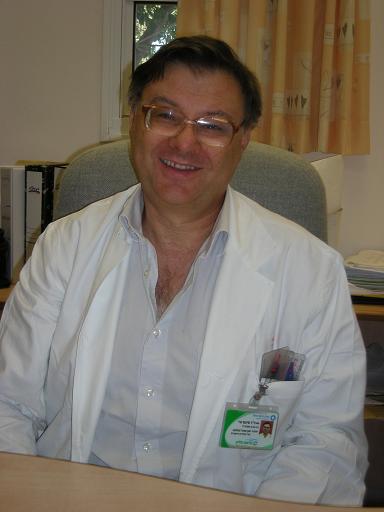Surprising results in a new study conducted at Carmel Hospital in Haifa: children of elderly parents do not correctly assess their parents' fear of death and are actually more afraid of them

Children and family members of elderly parents are mistaken in their assessments of the presence of death anxiety in their parents, much more than the parents themselves really estimate, so suggests a study conducted in the geriatric department at the Carmel Medical Center in Haifa, and which is published on the occasion of the Month of the Elderly held this month in Israel.
Death anxiety is a topic that comes up almost every day when working in the care of the elderly population. The existence of fear of death may affect the old man's ability to make decisions and harm his quality of life. The anxiety on the part of the patient and/or on the part of his family creates a lack of cooperation and difficulty in transferring information from the medical team to the patient. In the world, and also in Israel, there are laws that give the patient the right to receive medical information about his condition and to be a part of decisions. However, sometimes the multi-professional team encounters vigorous opposition from the family not to comply with the law. The impression is created that the children with a high level of death anxiety and not the elderly parents. In a study carried out at the Carmel Hospital, the following hypothesis was tested: Are children of elderly parents unable to correctly assess the inventions or non-inventions of death anxiety in their parents.
The study was carried out in the geriatric department at the Carmel Medical Center in Haifa by Dr. Gary Sinoff, deputy director of the geriatric department and responsible for the cognitive clinic, in collaboration with Dr. Yosifovitz from the Geriatrics Department, Dr. Almog and Dr. Burnett from the Department of Community Medicine and Epidemiology at the Carmel Medical Center .
As part of the research, dozens of elderly/child couples were examined over a period of about six months. Every old man admitted to the acute geriatric department at the Carmel Medical Center was recruited for the study on the condition that he agreed, spoke one of the researchers' languages, had a son/daughter in Israel, and had no cognitive impairment. After signing a consent form to participate in the study, demographic and health data were collected, and then the elderly subject answered questionnaires to assess his mental (anxiety/depression) and functional state. After that, the elderly subjects answered the questionnaire that examines the existence and level of their "death anxiety". Finally, the children of the elderly were asked to fill out the same questionnaire twice, once to assess their own "death anxiety" level and a second time to assess what their parents answered.
The average age of the older parents was 82 years and that of the children 51.5 years. The results were certainly surprising. Analyzing the results for each question separately, it became clear that in every question that dealt directly with the issue of death, a significant difference appeared between the child's answer and the elderly parent's answer, with the child consistently expressing fear of death and claiming that his parents also suffer from death anxiety. It was also found that about 30% of the children answered that they are opposed to information being given to their parents about their parents' health status (even though this is against the Patient's Rights Law).
The conclusion from the study shows that the children do not correctly assess the non-existence of death anxiety among their parents. The elders themselves did not suffer from death anxiety but their children scored high on their death anxiety test and even more indicated that their parents had a higher level of death anxiety. As a result of the way the children perceive and think, there is difficulty on their part in dealing with the issue of death and they limit the staff from giving vital information to the elderly parent.
In the geriatric department at the Carmel Medical Center, it appears that it is necessary to develop intervention plans as soon as possible on how to deal with the phenomenon (the gaps in assessments and their effects) with a desire to make it easier for the elderly population and their children.
